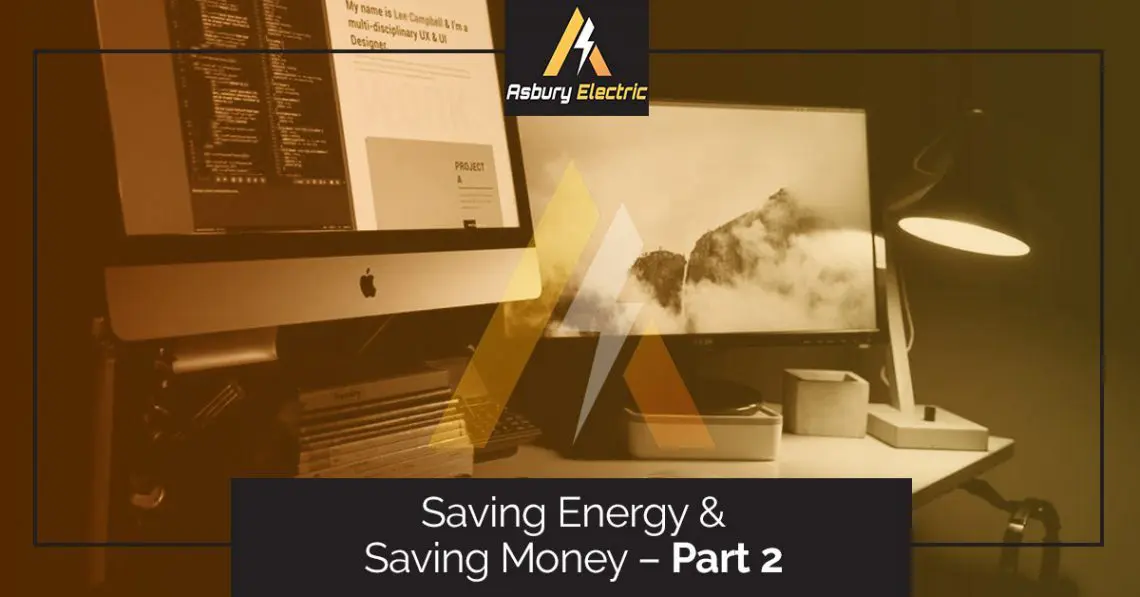Welcome to part two of Asbury Electric’s series on saving energy and saving money. In the first article in this series, we explored ways to better understand where you are using the most energy, and how to eliminate vampire energy leaks.
In part two of our series, we’ll cover some specifics about computers and home electronics. These three areas are really good places to start with energy savings because they don’t require a huge investment of time, energy or dollars. And they are, for the most part, things we tend to replace more frequently than large appliances like water heaters or refrigerators.
Computers and Electronics
The first thing you should do is to learn how to use the power management features on your computer. If you use your computer frequently throughout the day, it probably isn’t practical to turn it off or unplug it every time you step away, but you can still save energy. Most computers have a sleep mode that will turn off non-critical background processing and turn off the monitor. You can automate your computer’s energy-saving features so you don’t even have to think about it.
There are some situations when even your automated settings might not take effect, especially on a Windows computer. Make sure that you:
- Don’t leave a file open on a network server
- Don’t use graphic-intensive screen-savers
- Don’t leave a PowerPoint presentation open and in presentation mode.
There are some energy myths that you may have heard about computer management systems. Let’s put those to rest right now. According to Energy Star, these are some of the most common myths:
- Putting your computer in sleep mode wears out hardware more quickly because the computer has to boot up more often.
- Sleep mode and other features save such an insignificant amount of energy that they aren’t worth it.
- Power saving settings like hibernate make your computer system less stable and cause it to crash.
Energy Star
Look for Energy Star. Products that receive the Energy Star rating meet strict energy efficiency requirements. If you are planning to purchase a new computer or home electronics, be sure they’ve got the Energy Star stamp of approval.
Laptops, Desktops, and More
There are pros and cons to various types of computer systems. Make sure you are using one that best fits your needs and that you aren’t unnecessarily buying energy-sucking processing power that you don’t need and won’t ever be able to take full advantage of.
We hope that these tips have been helpful. We’ve still got a lot more to come. Our next article in this series will cover everything you ever wanted to know about home lighting and how to update your lights and lighting systems to save electricity and money.
Meanwhile, if you are in the Gloucester area, give Asbury Electric a call if you need an inspection, maintenance, or a new appliance installed. We’re here to help and to answer all of your questions about home electrical services.


